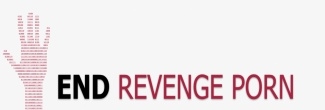This week, a toy company called GoldieBlox ignited a chatterstorm with a video of three girls playing with a Rube Goldberg-type contraption and singing alternative lyrics to the Beastie Boys song “Girls.” Since the video went up on Monday, it has been viewed more than seven million times and fueled discussion about how to get young girls interested in pursuing scientific careers.
But apparently not everyone is thrilled with the viral video.
According to a lawsuit filed on Thursday by GoldieBlox, “the Beastie Boys have now threatened GoldieBlox with copyright infringement. Lawyers for the Beastie Boys claim that the GoldieBlox Girls Parody Video is a copyright infringement, is not a fair use and that GoldieBlox’s unauthorized use of the Beastie Boys intellectual property is a ‘big problem’ that has a ‘very significant impact.’”
Goldieblox is now going to a California federal court to get declaratory relief that the video is not a copyright infringement. Read the complaint.
The plaintiff is a startup company focused on selling sophisticated toys for girls. The video makes the point that not all young females want pink ones and dream of being princesses.
One of the reasons why the video has captured the cultural imagination is its choice of music from the Beastie Boys, who it must be noted are still defending a copyright lawsuit alleging illegal sampling on the album “Paul’s Boutique.”
In the original song, the Beasties sang: “Girls — to do the dishes/ Girls — to clean up my room/ Girls — to do the laundry/ Girls — and in the bathroom/ Girls, that’s all I really want is girls.”
The video replaces those lyrics with: “Girls — to build the spaceship/ Girls — to code the new app/ Girls — to grow up knowing/ That they can engineer that/ Girls. That’s all we really need is girls.”
Is that “fair use”? To answer the question, a judge will be looking at the four factors of fair use: the purpose and character of the use, the nature of the copyrighted work, the amount and substantiality of the portion taken and the effect of the use upon the potential market.
The first of these factors figures to raise a provocative discussion. On one hand, the video is commercial speech. It might have a larger message, but it was also intended to sell toys. (In fact, Goldieblox is said to be a finalist for an Intuit competition to make a Super Bowl commercial.) If using copyrighted works without license was as easy as making a social point, surely a lot of corporations would try to get away with that. Certainly some politicians have tried without success.
Then again, there’s no doubt that this particular advertisement has earned some cultural cache, and thanks to the degrading lyrics of the original song, there was always opportunity to do something novel commenting on the predecessor.
According to the lawsuit, “GoldieBlox created its parody video with specific goals to make fun of the Beastie Boys song, and to further the company’s goal to break down gender stereotypes and to encourage young girls to engage in activities that challenge their intellect, particularly in the fields of science, technology, engineering and math. The GoldieBlox Girls Parody Video has gone viral on the Internet and has been recognized by the press and the public as a parody and criticism of the original song.”
Here’s the video. Satire or parody? Copyright infringement or fair use?
This article originally appeared at THR.com.
Beastie Boys Accuse Maker of ‘Girls’ Viral Video of Copyright Infringement - Billboard
http://www.billboard.com/articles/news/5800686/beastie-boys-accuse-maker-of-girls-viral-video-of-copyright-infringement
copyright infringement news - Google News





